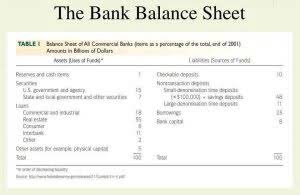Final Expense Life Insurance Policy

They will, however, receive a return of the premiums the policyholder paid—plus interest, usually at an annual rate of 10%. For more on guaranteed issue policies, including how life insurance companies can afford to offer them, read our piece on guaranteed issue life insurance. Final expense insurance premiums vary depending on your age, the company you choose and the death benefit amount.
- The application process for final expense insurance is often streamlined, typically without the need for medical exams or extensive underwriting.
- A death benefit is the money a policy will pay to beneficiaries when a policyholder dies.
- Your beneficiaries can also use the money from a final expense life insurance policy to put a down payment on a property, go on a vacation, pay for college, or visit family overseas.
- You can request a general price list from any funeral home in your neighborhood to get an idea of how much your final arrangements could cost your loved ones.
What Is Final Expense Insurance?

Welcome to our ultimate guide on final expense insurance – a smart financial choice for securing your family’s future. In this easy-to-understand introduction, we’ll unravel the world of final expense insurance, explaining what it is and why it could be a crucial investment for you and your loved ones. David Duford is a nationally licensed insurance expert with over ten years of experience. David has been featured as an expert source for highly authoritative publications such as A.M. He also runs one of the largest Youtube channels to help aspiring insurance agents serve their clients better.
What Will Final Expense Insurance Cover?

For example, $20k may be just right if you want to pay off debts, like your mortgage or credit cards, plus final expenses, or if you want to have a more elaborate funeral. For best results and to find out how much final expense coverage you need, consult a financial advisor. His beneficiaries will come out ahead if he dies between the first day of year three (when the waiting period ends) and the end of year six, when the premiums paid will be about equal to the death benefit. As with any type of life insurance, the premiums for final expense insurance depend on your age and health; where allowed by state law, they may also depend on your gender. Upon your death, these life insurance policies what are retained earnings pay out a lump sum of money that beneficiaries can use for anything they want.

What Questions Do Seniors Have About Final Expense Insurance?

Term insurance is the most common type of income replacement and can have face amounts in the millions of dollars. 73% of American consumers die in debt according to research from Experian FileOne and Credit.com. The average total Bookkeeping for Chiropractors balance left is roughly $61,554 (including mortgages).
Moreover, if they have the needed funds to meet obligations, the benefit can be used in any other way the beneficiary chooses. Final expense insurance comes with its own set of pros and cons that are insurance expense important to weigh before purchasing a policy.
Pay off debts
You should get final expense life insurance if you can’t qualify for another life insurance policy, have already been denied coverage, have serious health issues and only need a small amount of coverage. Final expense life insurance rates depend on your age, health status and the coverage amount. While you don’t have to take a medical exam, you can get a cheaper rate if you answer a few health questions on the application. Deciding between final expense vs. term life insurance depends on your needs and circumstances. If your primary concern is covering funeral expenses only and you require a policy with more accessible qualification standards, a final expense insurance coverage may be better.
- Western & Southern is the marketing name for a group of diversified financial services businesses composed of Western & Southern Financial Group and its seven life insurance subsidiaries.
- She is a highly experienced editor, writer and team leader with an extensive background in the insurance sector.
- Final expense policies allow your loved ones to focus on grieving rather than worrying about funeral bills.
- If the policyholder dies during their waiting period, their beneficiaries will not receive the policy’s death benefit.
- Final expense insurance can cover expenses related to things such as a funeral service, a memorial service, embalming, a casket, cremation, placing an obituary in various newspapers, and flowers.
What is the difference between burial and funeral insurance?
Laws of a specific state or laws relevant to a particular situation may affect the applicability, accuracy, or completeness of this information. Federal and state laws and regulations are complex and are subject to change. The Company makes no warranties with regard to the information or results obtained by its use.
However, you may be better served by a different type of policy at a younger age. The application process for final expense insurance is often streamlined, typically without the need for medical exams or extensive underwriting. This simplicity and convenience make it easier to obtain coverage, allowing you to focus on planning for the future. By investing in final expense insurance, you can provide financial security and ease the burden on your loved ones during a challenging time. It is an opportunity to plan ahead and ensure that your end-of-life expenses are covered, leaving a lasting legacy of care and support. Most policy amounts are under $50,000, but the average policy is taken out for $10,000 – $20,000.
